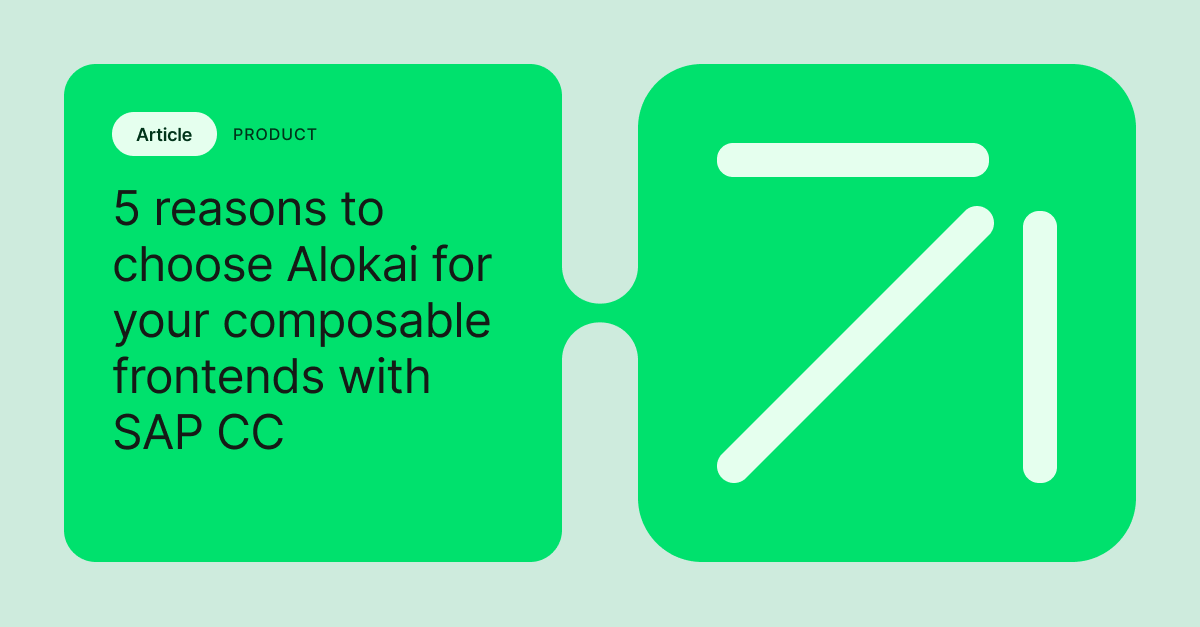Explore by Category:
eCommerce
SAP Commerce Cloud B2B
This article is made available to you through our valuable partnership with Brave Bison as part of our collaborative efforts.
In B2B commerce, businesses grapple with many challenges, from managing expansive supply chains to catering to the specific demands of a diverse clientele. Enterprises depend on platforms that offer not only flexibility and scalability but also the capability to address the nuanced needs of B2B transactions.
SAP Commerce Cloud, with its robust features and adaptability, stands out. Tailored to large enterprises aiming to streamline and optimise their B2B operations, it offers a suite of tools designed to tackle the unique challenges of B2B commerce. Join us as we explore the attributes that position SAP Commerce Cloud as a top contender in the B2B commerce arena.
What SAP Commerce Cloud offers for B2B
Unlike many SaaS e-commerce platforms that offer a one-size-fits-all solution, SAP Commerce Cloud is designed to adapt. Whether it's custom workflows, unique pricing models, or specific integration needs, the platform moulds itself to fit your business's requirements.
B2B transactions aren't just larger-scale B2C transactions; they come with their own set of complexities. These complexities can range from bulk ordering and contract pricing to multi-tier distribution models. SAP Commerce Cloud understands these intricacies and offers solutions tailored to them.
Moreover, B2B customers, often large organisations, have their own operational methodologies and demands. SAP Commerce Cloud customers benefit from a platform that understands these unique demands and offers tailored solutions. They might require custom catalogues, specific payment terms, or even unique delivery schedules. SAP Commerce Cloud is built to cater to these specialised requests, ensuring that businesses can serve their clients effectively.
Growing a profitable B2B digital eCommerce with composable commerce
Building a B2B digital eCommerce with composable commerce is a transformative approach that SAP Commerce Cloud supports. Composable commerce offers businesses a modular approach that allows them to handpick the best technology for each segment, ensuring performance and flexibility. For B2B operations, this translates to the ability to deploy powerful, cutting-edge storefront technologies that enhance user experience and boost search rankings.
The beauty of composable commerce lies in its adaptability. If a component, say a CMS, isn't delivering as expected, you can effortlessly replace it without disrupting the entire system. This eliminates the constraints of tight coupling, where changing one element might necessitate overhauling significant portions of your business logic. This flexibility becomes even more crucial for B2B operations, which often deal with more complex workflows and customer demands.
SAP Commerce Cloud’s ability to integrate seamlessly with various components ensures a cohesive and efficient B2B commerce experience. By leveraging SAP Commerce Cloud within a composable architecture, businesses can harness the best of all breeds.
SAP Commerce Cloud advantages for B2B commerce
It offers highly personalised customer experiences
In B2B, where transactions are often intricate and customer requirements vary widely, personalisation is paramount. SAP Commerce Cloud recognises this and offers advanced personalisation capabilities that go beyond just product recommendations. They encompass tailored content, individualised pricing models, and customised promotions based on the customer's history and preferences. In an environment where long-term relationships are crucial, such personalised interactions can significantly boost customer retention and loyalty.
It's highly integrated within its ecosystem
One of the standout advantages of SAP Commerce Cloud is its seamless integration capabilities within the broader SAP ecosystem. This integration isn't just about technical cohesion; it's about enhancing the entire B2B customer journey by ensuring that every touchpoint is informed and efficient.
SAP Customer Data Cloud
At the heart of any successful B2B operation is a deep understanding of the customer. SAP Customer Data Cloud (CDC) offers this by providing tools for customer identity, consent, and profile management. In the context of SAP Commerce Cloud, integrating with CDC ensures that the platform always accesses up-to-date customer data, preferences, and consent statuses. This enhances personalisation and ensures compliance with data protection regulations.
SAP Service Cloud
B2B interactions don't end after a sale. Post-sales support and service are crucial, and this is where SAP Service Cloud comes into play. It equips businesses with a range of service solutions, from ticketing to knowledge base management. When integrated with SAP Commerce Cloud, service agents get a 360-degree view of the customer, including their purchase history and past interactions. This holistic perspective means quicker issue resolution and a more personalised service experience.
Real-time customer support
In B2B, the stakes for customer support are significantly higher than in B2C. SAP Commerce Cloud recognises this and has embedded real-time customer support functionalities to address it. The SAP support feature is designed to handle the complexities of B2B interactions, whether it's a question about bulk orders, custom product configurations, or specific payment terms.
SAP Commerce Cloud drawbacks for B2B commerce
It's not great for small- and medium-sized businesses
SAP Commerce Cloud is robust, feature-rich, and designed to handle the complexities of large-scale B2B operations. This design inherently means that its setup process can be extensive. For businesses that are looking to integrate it with SAP ERP, there's an expectation to align business processes with the SAP framework.
This alignment can be a significant undertaking, especially for smaller businesses without the resources or need for such extensive features. However, by following SAP Commerce Cloud's best practices, even smaller businesses can harness the platform's potential.
Cost implications
The comprehensive nature of SAP Commerce Cloud comes with a price tag that might be prohibitive for some businesses. Given its extensive features and capabilities, the platform can be expensive, especially for businesses that might not utilise its full range of functionalities.
It’s still a monolithic platform
SAP Commerce Cloud is inherently a monolithic platform. While this architecture offers stability and integrated functionalities, it also brings the typical challenges associated with monolithic systems. For businesses looking to adopt a more modular or composable approach, using SAP Commerce Cloud might mean paying for features they won't actively use, leading to redundancy.
How well does SAP Commerce Cloud integrate with other software?
One of SAP Commerce Cloud’s core strengths is its adaptability, allowing businesses to integrate it with a wide range of software solutions seamlessly. For businesses considering a transition, SAP Commerce Cloud migration tools and resources are available to ensure a smooth shift.
A key recommendation from SAP is to leverage the Business Technology Platform (BTP). BTP acts as a middleware, streamlining the process of data transformation and ensuring a more decoupled and efficient integration with other systems. This is particularly beneficial for businesses that want to maintain a cohesive data flow across various platforms without getting entangled in complex integration challenges.
Another noteworthy feature is the Omni Commerce Connect (OCC). Built into SAP Commerce Cloud, OCC is a headless set of APIs that exposes the platform's commerce functionalities. Instead of being tied to a specific webpage, this approach to headless commerce B2B allow other systems, be it storefronts or apps, to tap into SAP Commerce Cloud's capabilities and present tailored experiences to customers.
For businesses already invested in the SAP ecosystem, especially those using SAP's Enterprise Resource Planning (ERP) software like SAP ECC 6.0 or S/4HANA, the integration becomes even more streamlined. These ERP products have a pre-integration setup through BTP, ensuring consistent communication, especially concerning customer and product data.
For example, when a customer logs in, the system can recognise their individual permissions, controls, or pricing structures. If this organisational modelling is done within the SAP ERP system, it can synchronise effortlessly with the commerce system. This level of detailed data understanding and synchronisation is something not commonly found in many commerce platforms.
Key SAP Commerce Cloud features for B2B
Product content management
SAP Commerce Cloud offers robust product content management capabilities, allowing businesses to manage extensive product catalogues, variations, and attributes. This feature ensures that B2B customers have access to detailed product information, facilitating informed purchasing decisions.
Omnichannel commerce
B2B customers expect to interact with businesses across multiple touchpoints. This is a reality catered to by SAP Commerce Cloud's omnichannel capabilities, which ensure that a consistent and seamless experience can be found across all channels, be it web, mobile, or even offline.
Final Words
SAP Commerce Cloud is a versatile solution tailored to the intricate world of B2B commerce. Offering flexibility, scalability, and adaptability, SAP Commerce Cloud stands out with its ability to address the unique challenges of B2B transactions. It provides custom workflows, supports complex pricing models, and accommodates specific integration needs.
With a focus on personalization, seamless integration within the SAP ecosystem, and real-time customer support, SAP Commerce Cloud enhances B2B customer experiences.
However, it may be less suitable for smaller businesses due to its extensive setup process and cost implications. Despite being a monolithic platform, SAP Commerce Cloud excels in integration capabilities, allowing businesses to connect it with various software solutions seamlessly.
Share:
Share:
Ready to dive in? Schedule a demo
Get a live, personalised demo with one of our awesome product specialists.


















